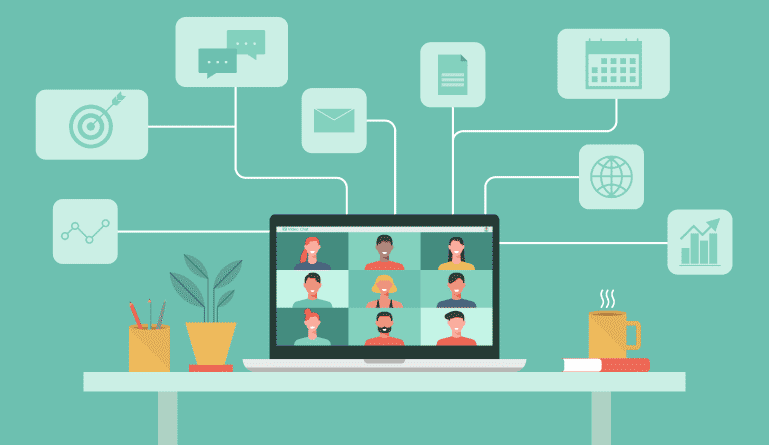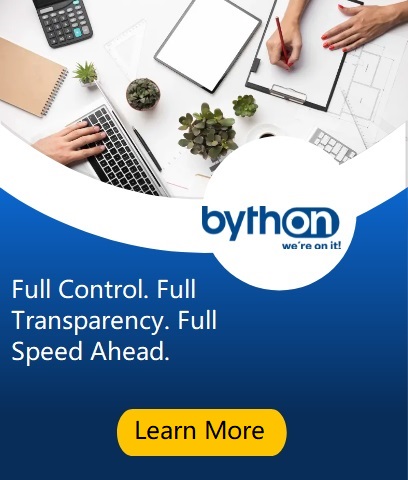What is the Generational Gap in the Workplace?
The generational gap in the workplace is the difference in age as well as beliefs and skills between people in different generations. This differential in opinions, politics and values can be seen typically between younger generations and older generations respectively. It’s important to recognize these differences and to use them in a positive way to reinforce team values and to help generations learn from each other to push towards team success.
5 Generations in the Workplace to know
There are five generations currently integrated into the workplace for the first time in history. Traditionalists were born before 1945 and Baby Boomers were born between 1946 and 1964. Generation X was born between 1965 and 1980 while Millennials were born between 1981 and 2000. Lastly, Generation Z was born between 2001 to 2020(1).
In any work setting, there are challenges presented to employers and co-workers alike. The ability to manage people has changed with so many different character traits, beliefs, experiences and mindsets together in one setting. Each generation brings new ways of working, communicating and responding to different situations.
These new changes can either bring a team closer together or tear it apart. With new challenges brings new benefits to a team with multiple generational mindsets within it.
Summarizing Generations in the Workplace
-
Traditionalists
Born between 1925 and 1945, traditionalists carry reliable and loyal traits. They are motivated by respect and recognition. With the most experience out of any generation, their main goal is to provide as much long-term value to their company as possible. With the sincerest touch, they prefer to communicate offline and with a personal touch. Don’t be surprised to receive handwritten notes or spoken word praise.
They will view their age with seniority and will always make sure they are advancing through the corporate hierarchy. They work well in teams because they believe in obedience and loyalty over individualism. They know that one person is not above the team. Employers should make sure traditionalists are provided with satisfying opportunities to contribute to the team so that they can maintain stable team balance and provide straightforward feedback.
-
Baby Boomers
Born after traditionalists and before 1964, this generation is known for their very strong work ethic. Typically, they are competitive and very team-orientated. They prioritize professional accomplishments in the workplace, so don’t be afraid to see their awards on their desks. In order to achieve these accolades, they often set goals for themselves and use their competitive nature to achieve them.
Boomers are typically more reserved from the social aspect of the workplace as they are instead looking for the quickest yet most efficient way of completing their tasks. As long as they are working efficiently, it won’t matter if they are taking more phone calls, more face to face meetings or sending more emails than everyone else. They will continue to work hard until the job is done.
One to one communication is typically their preferred method of messaging anyways, so they’ll write letters to individuals if they have to. 65% of Baby Boomers plan their lives around working past the age of 65, which speaks volumes to their desire to work and provide value for their teams. To put it into perspective, around 10,000 Baby Boomers reach the retirement age every day.
When working with Baby Boomers, providing them specific goals and deadlines will give them the best pathway to success as they know where they need to end up. Baby Boomers are not afraid to do what it takes to reach their end objective. When put in managerial or mentor roles, they offer incredible work ethic advice. Baby Boomers work well as coaches in the workplace as well because of their feedback style.
-
Generation X
Born between Baby Boomers and Millennials, Generation X brings a different mindset to the workplace. Typically, Generation X brings balance to their teams. They fill roles and are independent when given tasks.
Between the two competitive natures between Baby Boomers and Millennials, Generation X values freedom and flow into their workplace. Favoring diversity and work-life balance, they are looking for more informal ways of improving their teams and companies. They enjoy working with others and diversifying their routines to provide a more personal touch in their lives. With this independent mindset, Generation X finds ways to be efficient in their workplace so that they can also focus on their personal-professional relationship in their life.
If this work-life balance is compromised by changes in the workplace, they are quick to move onto another employer or team so as to not change their life’s daily flow. Typically, they are resistant to changes in their workplace life if it jeopardizes their personal life. If values that embody Generation X are valued in a company, it’s best to keep them around as by 2028 the number of employees born between 1965 and 1980 will outnumber Baby Boomers.
When working with Generation X, the best option is to provide flexible ways for the employee to work. These adaptable arrangements help give Gen-Xers a piece of mind as well as a better relationship in their professional words. Any personal development opportunities should always be offered here to maximize the value of Generation X.
-
Millennials (Generation Y)
Perhaps the most tech-savvy generation, Millennials are the largest in terms of sheer numbers in the workspace. Approximately 3/4 of the global workforce will be made up of millennials by the year 2025.With their technological knowledge, most millennials have a competitive and independent “start-up” mentality.
Typically managed by Generation X, Millennials will look for the same work-life balance and flexible arrangements in order to develop the best relationships and mindsets on their team. Their strong work-ethic is different from their managers, however. Millennials seek smarter and efficient means of working. This often sparks new and innovative ways of completing tasks, which can ultimately lead to a “start-up” mentality. This mindset relates to a sense of spearheading projects and finding the best way to achieve goals.
Generation Y grew up with the rise of technology at their side. They typically communicate electronically with texts, instant messengers and email. It’s not that they dread face to face conversations, letters or phone calls. It’s because these are the most efficient forms of communication to them. However, sometimes they can get caught up in their gadgets.
The best way to integrate them into the team is to get them to look up from their device. They work best when you get to know them personally. Once this relationship is developed, they can provide excellent growth to a team. Millennials are driven by results, usually from their new efficient method, and if this isn’t achieved, they are likely to seek change elsewhere instead. Keep flexibility in mind and provide them with immediate feedback so they can continue to bring value.
-
Generation Z
The new kids on the block, their global and progressive mindset is incredibly valuable to any team. They grew up during the rise of technology similar to Millennials, however they have a new way of thinking.
Using Generation Y’s momentum, Generation Z develops a form of efficiency similar to entrepreneurship. The same start up mentality is brought in as they come in as the most connected to technology than any other generation. With the rise of social media, it’s easier for Generation Z to find opportunities to learn and grow and showcase it in the workplace.
Knowing that they are connected to their tech, they value the time spent with their managers. Typically, Generation Z wants to interact with their leadership daily or even multiple times a day. Around 40% of them prefer this when working in a team. They also prefer working with Millennials as managers or teammates as they are the most relatable to each other. This relationship paired with their independent and individual ambitions strengthens their value on a team and gives them an opportunity to provide balance in their lives.
While implementing various new strategies and methods, Generation Z is great at multitasking and employing efficient ways of achieving their goals. Giving Generation Z their independence and freedom is key for their development in the workplace as well as personally. With their worlds newer than any other generation, they are concerned about their career stability and aren’t afraid to do what it takes to make sure they are valuable to teams.
(Download Whitepaper: Secrets of a Connected Workplace)
Issues with Generational Diversity
- The biggest issue right off the bat is the risk of conflicting interests and mindsets within the work area. Teams made up of more traditionalists and baby boomers may be less susceptible to changes while younger generations will always look to adapt and change to do what’s best for the team.
- Change will always bring its challenges to any team, however when those changes begin to affect work-life balance, that will be seen as a negative to younger generations. In the same way, these changes can be seen as new and less efficient to older generations in the workplace as they want to stick to what was working and what they know.
- In addition to changes in methodology and workflow, conflicting interests and interpersonal issues can also cause disputes. With different mindsets of work-life balance as well as personal development at work, this can cause teams to not get along. Whether this relates to communication or new methods of work, there will always be these types of differences.
- It’s up to one side to adapt in order to maintain a stable work balance. With these differences on teams, this can cause a reduction in employee engagement as well as a decrease in overall productivity.
(Also Read: Effective Communication in the Workplace)
Benefits of Generational Diversity
- These differences can bring a lot of productivity and benefits to a team. When there are any issues in the office, whether it’s outside of work or within a team, a diverse team can come in handy for coming up with new solutions. Having different mindsets and experiences can help identify the answers to many difficult questions and updating day-to-day issues.
- Along with the different experiences and personal relationships, different generations easily connect with different audiences. By sharing these experiences, each generation can learn from each other and adapt to best forms of communication and verbiage for certain audiences.
- All generations have their skill sets and preferred methods of completing tasks at work. Younger generations have a better connection with technology and older generations have experience working with many people.
- Generation Y and Generation Z have the best skills to help teach technology and other newer, modern techniques to Baby Boomers and even Traditionalists. The best ways to learn the foundations to most techniques are from Traditionalists and Baby Boomers as they have the most experience in their field. Having them as managers and in leadership positions can help mentor younger employees into their roles.
- These are all opportunities for personal development and learning technology to help improve the balance in the workplace. It’s better to have employees that are well-versed in all types of skills so that the work balance is distributed evenly. This can lead to a better work-life balance for all involved, which can create a comfortable workplace.
Understand which employee benefits to offer different generations in the workplace.
(Also Read: 5 Modern Ways of Using Technology to Improve Safety in the Workplace)
Final Thoughts
There is not a true way to determine the best makeup of a team in terms of generational diversity. However, typically there are recommended ways of recruiting the right team. The best way to recruit the right team is to make sure hiring is done by need. By being specific in job postings and requirements for a position, this can filter the best candidate to your team. When looking through their skills, be sure that their skillset fills the gap in your time as well as has room to improve by someone already on the team.
When pairing teams together, it is best to pair senior leaders with the youngest employees, typically Generation Y and Z. The experience that can be shared is invaluable to a team. In addition, pairing experienced members of your team in Generation X with Generation Y can help give a company a competitive edge in the workplace. Combining the flexible nature of Gen-X and the open-minded mentality of Gen-Y will bring a unique edge.
Be sure to understand the audience the company is looking to communicate with. A diverse generational team can help bring different experiences to the table and help with solving any solutions that cannot be solved otherwise.
In addition to this thinking of generational diversity fixing solutions, it is not appropriate to make age-based assumptions and stereotypes. By doing so, a disadvantage is already being placed on the team. No one person is the same and not everyone relates directly to their generation, so it’s best to learn the person and then understand their generation to see their fit and role on a team.
With generational diversity becoming a popular subject, it is important to understand all the advantages and disadvantages of having multiple generations in the workplace to work together. By creating a workplace that is comfortable, flexible and collaborative a team with many interests and mindsets can perform their best work together.
Other Useful Resources:
How to Improve Collaboration in the Workplace
7 Accessories that Will Make Anyone Stand Out in the Workplace
How Technology Increases Productivity in the Workplace
6 Tips to Avoid Substance Abuse in the Workplace
Best Employee Engagement Strategies and Its Challenges
12 Effective Tips on Preventing Workplace Violence and Harassment





